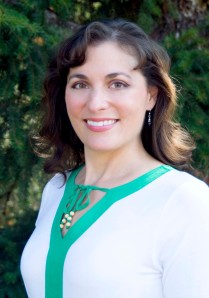I am watching A Knight’s Tale, one of many movies I could watch several times over. As I start to write, this scene is in the background:
“He’s a real Knight, William. Watch him and learn all that you can. Now go, and change your stars!”
“But father, I’m afraid.”
“Afraid of what?”
“Afraid I won’t be able to find my way home.”
“Don’t be afraid William, you’ll just follow your feet.”
Life is full of changes and situations which evoke fear in our hearts. “Courage is being scared but saddling up anyway,” according to John Wayne. It is knowing not knowing what is around the bend but peeking just beyond despite this unknown, is it not?
For me, that bend was motherhood, and waiting around that bend was one an awful monster I had no desire to meet. But we came face to face anyway, the monster and I, not too long after my first daughter graced my arms. The monster, he breathed heavily in my face, the moisture from his open, drooling mouth specking my face as if it were drizzling. He growled at me as he snatched me, taking me back to his lair just beyond the edge of town.
This monster, he shoved me down a hole in the floor of his shack, a hole so deep there was no light. I crawled into a corner and wailed helplessly until I fell asleep. This monster, he fed me, when he could, but left me there to wallow and ruminate, lost forever from the world, away from my child, my partner, everything. Until one day, a hand reached into the hole and helped me out. The light, it burned. The leaves were greener than I remembered, the dew sparkled on them as the sunlight bounced off the fresh rain collected just on the surfaces of the just born foliage.
The face of my rescuer blurred into many faces for it was not just one person, it was many, working together, which brought me back to the land of the living. One of those faces was my own for I had to fight to accept the help I so desperately needed to escape from the deep dark hole under the monster’s house.
As I left the monsters house, I of course, had to follow my feet home. For me, they led me to a new place in life, some of it familiar, some of it brand new. But alas, it was the home where my heart belonged.
In A Knight’s Tale, as Oreck travels to Cheapside, he encounters a little girl to find out where his father lives. She tells him, and he discovers his father is now blind, unable to see. So he goes up to see him, telling him that he is well without identifying himself, and that he has indeed managed to change his stars. Then there is this exchange:
“Has he followed his feet? Has he found his way home at last?”
“Yes.”
“Oh, Oh William! Oh my boy!”
Then, they sit, they talk, they eat, they laugh as if time has never passed. This is how it should be when a prodigal son returns. A celebration of return to self, or return to an improved self, rather.
Then the story goes dour again as the Adhemar, the knight opposing Oreck (William), exposes him as not being of noble birth. This is much like a relapse, as if the monster had hunted us down again and shoved us back in the hole.
But this time, this time he has people willing to fight with him, beside him, and most importantly, someone willing to truly change his stars. This is what I wish for all of us fighting a Perinatal Mood & Anxiety Disorder – a warrior willing to tilt full speed ahead with a lance against anything and anyone daring to rip us off our horses as we heal. This is what I work to be for all women who contact me – a fighting spirit who will not only go to bat for them but will do whatever I can to instill the same spirit within themselves.
Prince Edward then dubs Oreck, now William Thatcher, as a knight, asking him if he is fit to compete. He is, of course, and he wins against his enemy, the villainous Adhemar.
This is what those of us who fight against a mental illness want – we not only want to win our battles, but we want to be acknowledged as someone who matters. We are human, longing to be counted among those who surround us.
Every day may be a battle, every day may be exhausting, but we get up the next day, and do it all over again, hoping that today, just maybe, we will change our stars a little bit more than the day before, inching ever so much closer to the person we long to be deep inside our hearts.
Go. Change your stars. Don’t be found weighed, measured, and found wanting. Push yourself toward constantly changing your stars for the better. Defeat your monster, make him look up at you from the flat of his back after you have knocked him off his horse.
If you don’t need to change your stars, help someone else change theirs.
To you, it might just be a random act of kindness. To them? It might just change their entire life.

 Tell us a little bit about yourself – who is Christy Cuellar Wentz when she’s NOT the Mommy-Muse?
Tell us a little bit about yourself – who is Christy Cuellar Wentz when she’s NOT the Mommy-Muse?